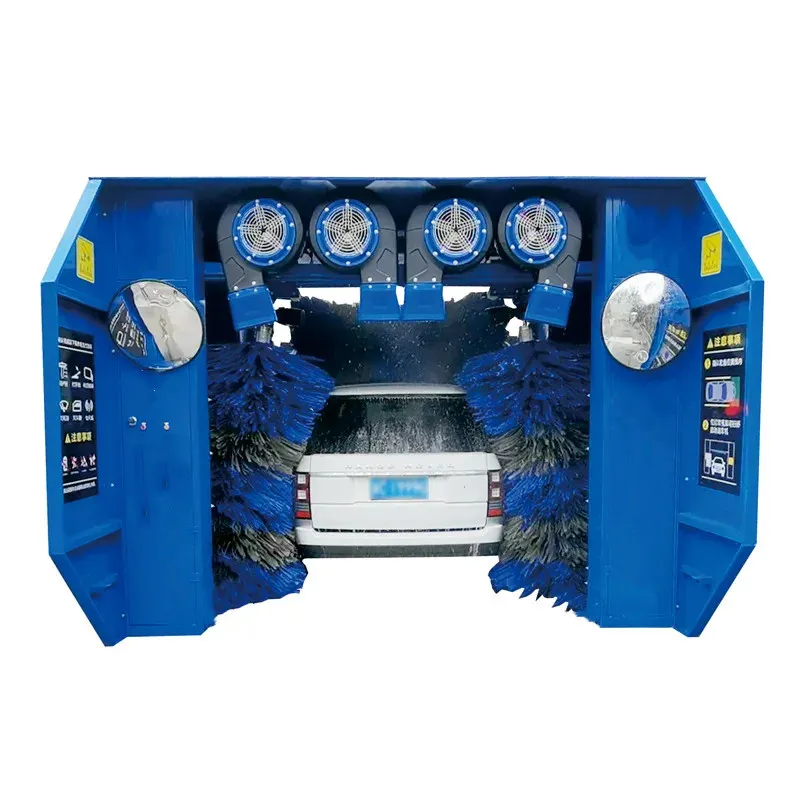machine car wash
The Rise of Machine Car Washes Convenience Meets Efficiency
In today's fast-paced world, convenience is key. The car wash industry has experienced a significant transformation over the past few years, largely due to the emergence of machine car washes. These automated systems have not only optimized the washing process but have also catered to the evolving needs of vehicle owners. In this article, we will explore the features, benefits, and future potential of machine car washes.
The Evolution of Car Washing
Traditionally, car washing was a labor-intensive task, often requiring a person to scrub, rinse, and dry the vehicle manually. While this method ensured thorough cleaning, it was time-consuming and required a considerable amount of effort. As urbanization increased and busy lifestyles became the norm, car owners began looking for quicker solutions. This gave rise to the automatic car wash—machines designed to clean vehicles quickly and effectively.
Today’s machine car washes range from simple drive-through systems to sophisticated automated units equipped with advanced technology. The introduction of robotic arms, high-pressure water jets, and eco-friendly cleaning agents has allowed these facilities to clean cars more thoroughly and efficiently than ever before.
Benefits of Machine Car Washes
1. Time Efficiency One of the most significant advantages of machine car washes is the time saved. With a typical wash taking as little as 3 to 5 minutes, car owners can quickly have their vehicles cleaned without waiting in long lines or spending an entire afternoon washing their cars.
2. Consistency in Quality Machine car washes utilize standardized cleaning techniques that ensure each vehicle receives the same level of care and attention. Unlike manual washing, where the quality may fluctuate depending on the worker’s skill, machine car washes deliver consistent results.
machine car wash

3. Cost-Effectiveness Many machine car washes operate on a membership or subscription model, allowing users to pay a flat fee for unlimited washes within a certain timeframe. This can be more economical than traditional car washes, where each service is paid for individually.
4. Water Conservation Automated car washes often use advanced water recycling systems that minimize waste. Comparatively, manual washing can consume much more water. This eco-conscious approach appeals to environmentally aware consumers.
5. Safety and Convenience In machine car washes, the risk of scratching or damaging the vehicle during the wash process is minimized. Additionally, customers can remain comfortably seated in their cars, making it a hassle-free experience, especially in poor weather conditions.
Future Trends
As technology continues to advance, machine car washes are expected to evolve further. Integration with smart technology is on the horizon, where users can schedule washes from their smartphones, receive notifications, and even choose specific cleaning programs tailored to their car’s needs.
Moreover, the adoption of eco-friendly practices is increasing, with many facilities investing in biodegradable cleaning agents and solar panels to power their operations. The drive towards sustainability will likely shape the future of car washes, appealing to consumers who prioritize environmental responsibility.
Conclusion
The rise of machine car washes marks a significant shift in how we maintain our vehicles. Offering speed, efficiency, and consistency, these automated systems align perfectly with modern consumers' demands for convenience and effectiveness. As technology continues to shape the industry, we can expect machine car washes to enhance their capabilities further, cementing their place as a vital component of vehicle ownership. With every wash, they not only save time and money but also contribute to a more sustainable approach to car cleaning, making our lives a little easier and greener. Whether you’re a busy professional or a family on the go, machine car washes are here to stay, transforming the way we care for our vehicles.
-
Car Wash Equipment – Durable, Efficient, Pro-Grade SystemsNewsNov.10,2025
-
automatic car washing machine price list: Fast ROI, Low CostNewsNov.10,2025
-
Car Wash Tunnel Design for High Throughput, ROI & UptimeNewsNov.10,2025
-
Car Wash Tunnel Design | High Throughput & Low MaintenanceNewsNov.10,2025
-
Automatic Car Washing Machine Price List - Fast ROINewsNov.10,2025
-
Car Wash Tunnel Design: High Throughput, Custom & DurableNewsOct.27,2025




